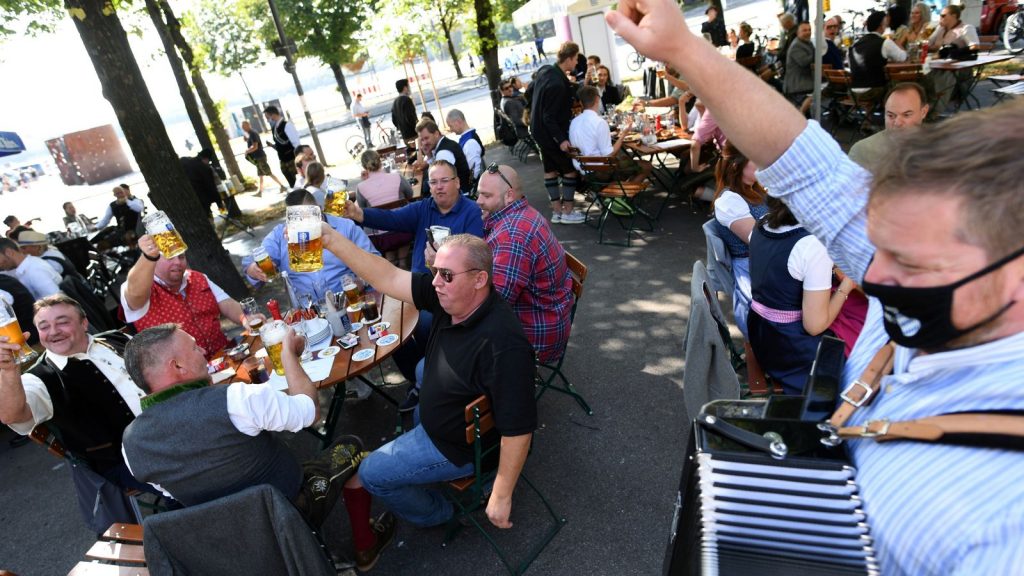Drinking alcohol in public will be banned and schools and shops will close between 16 December and 10 January.
Germany is to be plunged into a national lockdown over Christmas amid rising cases of coronavirus.
Under new measures which will last from 16 December until 10 January, schools and non-essential shops across the country will be closed.
Bars and restaurants will remain shut, while the sale of fireworks will be banned ahead of New Year’s Eve.
Hairdressers, beauty salons and tattoo parlours will also have to close their doors and drinking alcohol in public will be banned until 10 January.
The number of people allowed to meet indoors will remain restricted to five from two households.
However, Germans will still be allowed a small reprieve over the Christmas period as up to 10 people will allowed to meet from 23 December to 1 January.
The measures agreed between Chancellor Angela Merkel and the leaders of the country’s 16 federal states build on restrictions already in place under a partial lockdown.
“I would have wished for lighter measures. But due to Christmas shopping, the number of social contacts has risen considerably,” Ms Merkel told reporters in Berlin.
“There is an urgent need to take action.”
Finance Minister Olaf Scholz announced there will be an offer of financial support for businesses, in an effort to soften the economic blow of the lockdown.
Businesses that are forced to close will receive help in paying up to 90% of costs, or up to €500,000 (£470,140) a month.
Germany has been in a partial lockdown for the last six weeks and while bars and restaurants have been closed over that period, shops and schools have remained open.
Politicians have been alarmed in recent days as infection rates hit record levels.
The country’s health ministry recorded a daily case rise of 20,200 on Sunday to a total of 1,320,716, while the number of people that have died with coronavirus in Germany rose by 321 to 21,787.
Germany was one of the first countries in the Europe to slowly begin reopening its economy, earning widespread praise for its handling of the pandemic.
However, it now has the 12th highest number of COVID-19 cases in the world, forcing leaders to try and slow the spread of the virus.
Sky News

